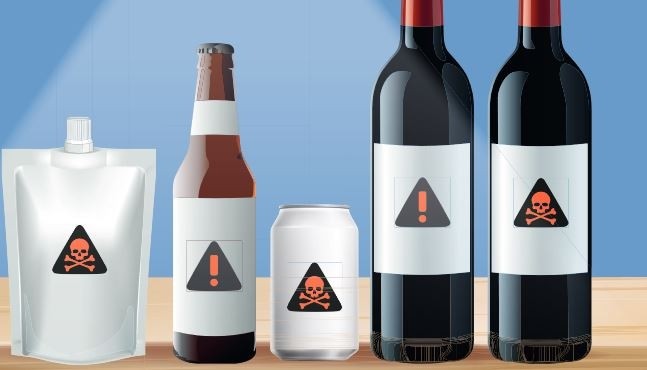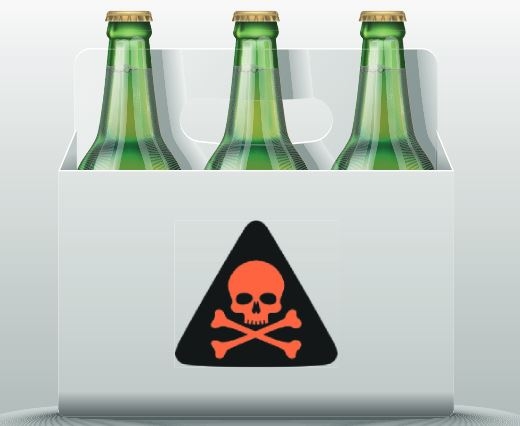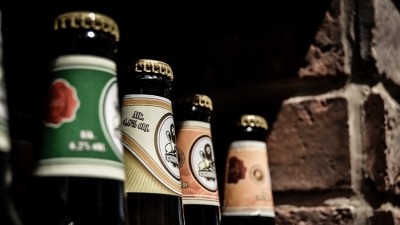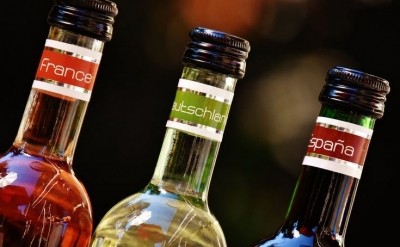Pack up and leave: could changes to alcohol labelling shut the pub?

Any form of additional legislation enforced on the pub trade could be a real punch to the gut for a sector finally getting back on its feet following a spate of ill-timed constraints. So, many would tremble at the thought of no-frills alcohol labelling and severe on-pack health warnings like those on cigarettes, rather than the alluring branding punters have become accustomed to.
But, the parallels between cigarettes and alcohol appear to be drawing closer, more so if the Royal Society for Public Health’s (RSPH) proposals for alcohol labelling are taken seriously by the Government.
At the end of January, the RSPH published guidelines for labelling alcohol in a similar way to cigarettes, including explicit warnings linking alcohol with health conditions such as bowel and breast cancer. Among many other recommendations, the body also called for traffic light colour coding on packaging, drink-drive warnings and calorie counts.
Few, if not all, licensees would concede more can be done to help educate consumers on safe drinking in their businesses. However, the vast majority would undoubtedly agree that wiping out vibrant designs in favour of grotesque, disturbing health warnings would be detrimental to the pub trade.
If all alcohol had to be sold in bland, green or brown bottles, I think it would be time [for publicans] to pack our bags and go.
– Tim Bird, Cheshire Cat Pubs & Bars
Talk of enforcing excessive measures in a bid to protect drinkers in pubs is somewhat insulting to landlords, insists Cheshire Cat Pubs & Bars owner Tim Bird. The award-winning operator, who runs seven pubs, asserts that, for hundreds of years, responsible licensees have protected customers from drinking too much and are more than capable of doing their jobs.
People are well educated about what they eat and drink, more so than ever before, he says. “Drinking too much is bad, and this has been known for years and years, but the messaging about what’s good and bad for us has become incessant,” adds Bird.
Demands from the Royal Society for Public Health (RSPH):
- Mandatory inclusion of the Government’s low-risk drinking guidelines of no more than 14 units a week, potentially including an explicit cigarette-style warning of the link with health conditions such as bowel and breast cancer. It also suggested that traffic light colour coding could help drinkers make use of unit information in the context of the guidelines.
- A drink-drive warning on the front label because, according to RSPH’s research, explicit warnings such as these are especially prioritised by young drinkers and more deprived socio-economic groups.
- Calorie content per container or per serve on the front label as RSPH’s research shows this could result in an almost 10% swing in consumer purchasing decisions from the highest ABV drinks to the lowest, within all main drinks categories (beer, wine, spirits) and across all socio-economic groups.
“If all alcohol had to be sold in bland, green or brown bottles, I think it would be time [for publicans] to pack our bags and go. Simply, we would lose a lot of heritage in alcohol, but also the back bar would be bland and uninteresting. Imagine if we had to sell alcohol from shelves covered with doors, like happens with cigarettes in shops.
“It’s almost as if pubs pick up a little pace and then someone comes along and puts another hurdle in front of you.”
While no one is suggesting, at the moment, the RSPH’s proposals will be enforced, or that any new form of labelling guidelines will be implemented to the extremes seen in the tobacco industry, there are real concerns it could happen. Many health groups use tobacco labelling changes as a standard to benchmark other segments causing health issues in the UK, including sugar and alcohol.
If such reforms ever do come to fruition in alcohol, evils far worse than lower wet sales in the on-trade could arise for the British public. A source from the tobacco trade told The Morning Advertiser (MA) that, since tighter labelling changes were made in May last year, the sale of bootleg, and potentially dangerous, cigarettes has increased.
UK tobacco sales data, following the new labelling rules and increased pricing, is not yet available, the source says, however, credible information is accessible from other countries. “Until there’s more clarity on UK sales, it might be more prudent to look to Australia, where it appears that plain packaging – which arrived there in December 2012 – has had little tangible impact on actual cigarette consumption or adoption,” he explains.
‘Growth of illicit tobacco’
“Rather, the biggest effect has evolved around the growth of illicit tobacco, largely at the expense of the legitimate products. The same pattern would appear to be emerging in the UK.”
Following several years of new tobacco label regulations, with on-pack literature and imagery warning consumers of the illnesses caused by smoking, brands were finally stripped of their identities last year. Like alcohol, the sector is also subject to annual tax hikes, which have impacted sales rates, as well as potentially driving smokers to clandestine alternatives. Cash and carry giant Booker saw tobacco sales drop by 10% in the four months after plain packaging rules were enforced.
Despite tobacco and alcohol being very different beasts – the former is a killer even in small quantities – years of increased legislation in the sector has seen sales drop and it would be easy to make comparisons between the two categories if alcohol labelling is overhauled.
Temperance groups are also moving public perceptions of the two closer by shouting louder than ever to brutalise the drinks trade in the same way campaigners did for tobacco.
Some observers, though, say better warnings and information, to a certain extent, will have little impact on drinks sales in pubs. Founder and chief executive of marketing and branding agency We Are Spectacular, Mark McCulloch, believes adding more guidance onto packaging could be a good thing, especially when it comes to making informed choices.
Even if the Government advocates a straight ban on alcohol individuality, certain brands may not be affected and could even come out stronger, McCulloch deliberates.
“Everything else – food and non-alcoholic drinks – has nutritional labelling, so why wouldn’t that be the same for alcohol?” he questions. “But, [if branding was eliminated], the bigger brands could be OK because they are trusted and people know of them.
“When you get into craft, they’re smaller, not well known and more often bought based on their packaging. When you get into craft beer, a lot of the liquids don’t match up to the packaging,” McCulloch argues, “so labelling changes may make people less inclined to move away from the brands they trust.”
Image, though, plays a big part in purchasing habits in the pub, he agrees. Drinks are usually branded, either in a glass or another form of packaging, such as a can or bottle, and this is where some alcohol brands could lose out if strict new packaging rules are ever enforced.
“I think the whole thing is the next challenge to test us as brands, it’s just like GDPR (general data protection legislation),” adds McCulloch. “Whether I think it’s right or wrong, it’s in the interest of the public and if it helps save one life, then great.”
One advocate of a complete alcohol labelling overhaul is nutritionist Dr Carrie Ruxton, who says a big change could help tackle obesity in the UK. In 2017, the UK was defined as having the most obese population in western Europe by the Organisation for Economic Co-operation and Development.
Britain's body mass index
According to its annual Health at a Glance report, more than a quarter of Brits had a body mass index (BMI) of 30 and above, defining them as officially obese, which is a 92% increase since 1990. A healthy Brit should have a BMI of between 18.5 and 24.9 – anything between 25 and 29.9 is considered overweight and above that, obese.
“I support calorie and sugar labelling for alcoholic drinks,” states Ruxton, who agrees such a move could cause consumers to buy higher ABV white spirits that are usually lower in sugar and calories. “Alcoholic drinks contribute significant amounts of calories and boost the risk of obesity – they are long overdue a labelling overhaul.
“I also think it should be mandatory for the Government’s new recommendation of no more than 14 units weekly to be put on labels,” she adds. “At the moment, manufacturers put out a range of advice, most of which exceed the safe limits.” In 2016, the Government revised its advice on the number of weekly units believed safe to drink from 21 to 14.
Meanwhile, alcohol manufacturers would not comment on the RSPH’s call for new labelling and instead referred MA to a Portman Group statement released after the publication of the Labelling the Point report.
There is low public interest in having stricter alcohol labelling, claimed Portman Group chief executive John Timothy. He went on to add: “Research we co-funded with the RSPH found little public interest in a radical overhaul of drinks labelling and strong opposition to cramming more information on packs.
“The [joint] study shows that 86% of consumers only look at labels for factual information and branding, with 80% saying they would like to see less cluttered labels. When asked specifically about health, 70% said the current approach was about right.”
There was mass support for the industry’s approach to develop updated voluntary guidance, to include the display of the chief medical officer’s guidelines on alcohol labelling, he added.
“Our members promote and support Drinkaware, which is recognised as the UK’s leading alcohol education charity and actively signpost people to its website for the most up-to-date guidance and advice,” Timothy concluded.
The RSPH claimed the Portman Group was taking a step back in its approach to alcohol labelling, saying the industry-funded organisation had released guidance to manufacturers that made labels less informative to consumers because the Government’s low-risk drinking guidelines were not a required element.
But Shirley Cramer, RSPH chief executive, is firm on her stance that consumers need to be aware of the health consequences of alcohol consumption, and said: “Having a drink with friends or family is something many of us enjoy. However, the potential health consequences of alcohol consumption are more serious than many people realise.”
Ultimately, she added, to raise awareness of and reduce alcohol harm, labelling on packaging must change.
Whether or not manufacturers and the pub trade agree with the proposed measures, the RSPH strongly believes they are the only way to create a healthier drinking culture in the UK, specifically for younger consumers and those from more deprived backgrounds.










